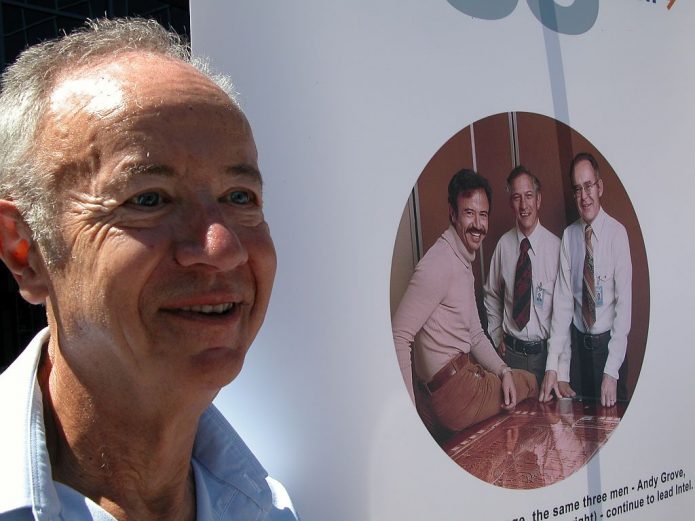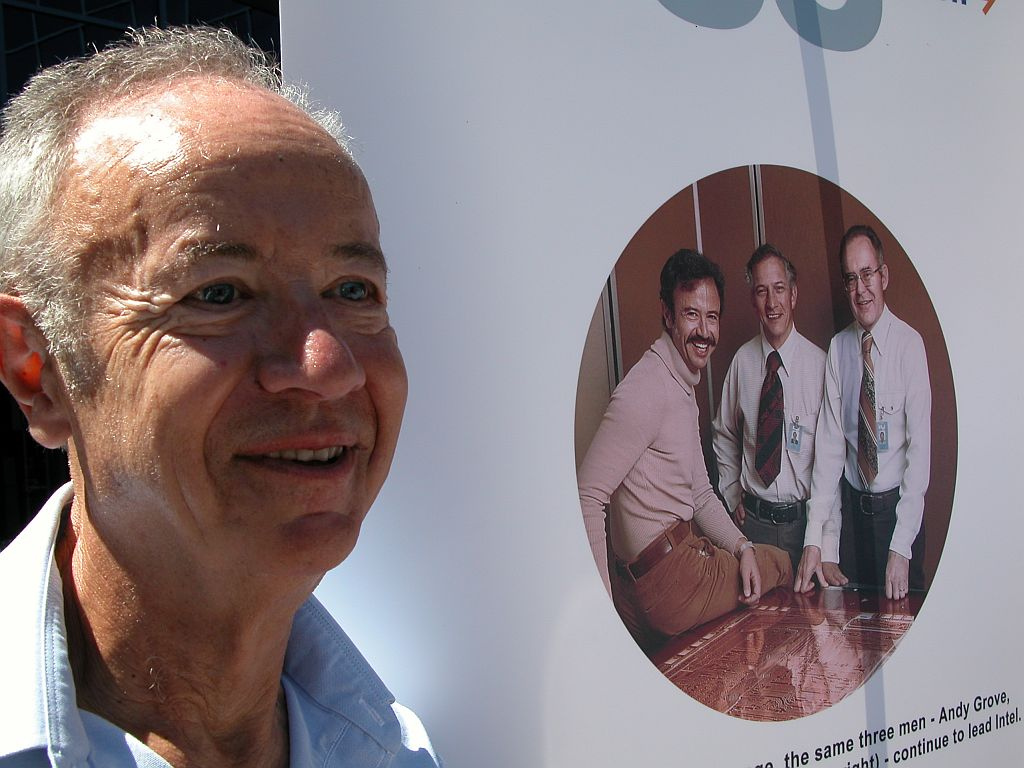
(Photo: Flickr / Intel Free Press)
One of the high-tech world’s most fabled superstars has passed. Andy Grove, the long-time CEO at the chip-making colossus Intel, died earlier this week at age 79.
Grove’s death brought forth a rush of entirely predictable plaudits from Corporate America. Former General Electric chief Jack Welsh hailed him as a “courageous entrepreneur.” Grove, Apple CEO Tim Cook pronounced, “epitomized America at its best.” He rates, added Microsoft co-founder Bill Gates, “one of the great business leaders of the 20th century.”
“Andy,” summed up current Intel CEO Brian Krzanich, “made the impossible happen.”
Even, apparently, in death. Grove’s passing hasn’t just brought forth plaudits from plutocrats. The high praise has also come from some unexpected quarters. The American Prospect, a widely respected progressive journal that regularly challenges America’s corporate elite, has saluted Grove as a “high-tech visionary” and lauded “his creativity in reformulating problems and suggesting solutions.”
The corporate-skeptic community has actually been embracing Grove for quite some time. Back in 1996, for instance, the nation’s most visible critic of excessive CEO pay — corporate compensation consultant Grael Crystal — gave Grove what amounted to a free pass.
Grove had just cashed out $94.6 million worth of stock options from Intel, at the time the second-sweetest stock-option windfall in American history. Reporters rushed to Crystal for his reaction. They expected some outrage. They didn’t get it.
“I told the reporters,” Crystal would note later, “that Grove was one of my compensation heroes and that, if anything, he was being paid far too little for his magnificent contributions to the shareholders of Intel of which, I am happy to say — nay, ecstatic to say — I am one.”
A shareholder who spent $100 on Intel stock in 1987, Crystal went on to explain, would have seen that $100 grow, in just a decade, to over $1,800, a 34 percent annual compounded return. By contrast, the S&P 500 Index, over those same ten years, returned a mere 14 percent per year.
Any executive who creates such immense value for shareholders, analysts like Crystal believed then and still believe today, can hardly ever be overpaid. If an executive “performs” at an Andy Grove level, the nation has no choice but to recognize that superior performance and lustily cheer the reward.
We need, Crystal proclaimed after Grove’s $94.6 million payday, “to celebrate his triumph and pray that those turkey CEOs running the other companies in my investment portfolio call up Grove and ask him how he did it.”
The basic operating assumption here: Corporations owe their “success” to their chiefs. America’s future leaders imbibe this conventional wisdom, year in and year out, at the nation’s finest business schools.
“A business school case in strategy,” notes the British economist John Kay, “characteristically features a named CEO struggling, frequently alone, to resolve the fundamental issues of his company’s strategic direction.”
Opinion-leaders in the United States — and increasingly the world — have swallowed this heroic executive worldview whole. Even critics of executive pay like Graef Crystal have accepted, as perfectly legit, the right of “successful” executives to outsized fortunes.
But American chief execs themselves, interestingly, will sometimes acknowledge the contributions to corporate success that others can make, particularly when those others are about to become CEOs themselves.
In 1998, to offer up one example, Andy Grove stepped aside as Intel’s CEO and turned over the reins to Craig Barrett, the company’s chief operating officer since 1993. Barrett, Grove noted in announcing the move, deserved the credit for Intel’s chip-making prowess.
“Craig has been the architect of Intel’s operations throughout the last decade,” summed up a magnanimous Grove. “Craig keeps the Intel machine running.”
That observation, if accurate, does raise some questions. If Craig Barrett deserved such significant credit, then his boss, CEO Andy Grove, was clearly not single-handedly responsible for Intel’s success.
And if Andy Grove was not single-handedly responsible for Intel’s success, isn’t it also possible that Craig Barrett was not single-handedly responsible for the kudos that Grove so generously showered upon him? Isn’t it possible that behind Craig Barrett stood legions of hard-working, unheralded assistants?
And if those unheralded assistants did indeed deserve significant credit for Intel’s success, why did the rewards for that success go so disproportionately to Andy Grove?
In life, Andy Grove never seems to have seriously contemplated that question. With his death, maybe the rest of us should.
